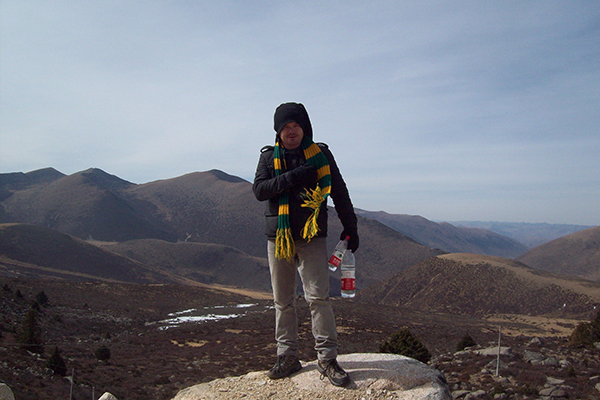

William TENNANT
Student of Deakin University, Australia
Exchange to Southwest University for Nationalities, China

I am currently a sixth year Law/Arts student at Deakin University, Burwood campus, with my Arts major being Mandarin Chinese. I have a real interest in Asia, having also previously studied Japanese for 8 years, and my goal in the future is to work in Foreign Affairs and Trade in the Asian region. The principle reasons for applying to participate in the exchange to China were to improve my Chinese language skills and to gain a better understanding of Chinese culture, history and economics. My study abroad program was made possible by the assistance of the Endeavour Australia Cheung Kong Awards, of which I am very grateful for.
The main reason for choosing Chengdu as the city that I would study in China was that I felt that I would be able to gain a better understanding of Chinese culture in a smaller and less developed city, where I would be less exposed to western influences than if I were in a larger city such as Shanghai or Beijing. Chengdu is the capital of Sichuan province, which is highly regarded for its agricultural production, and is located in southwest China. The western part of China is relatively underdeveloped compared to the eastern coastline; despite that, Chengdu is highly regarded for its tertiary education institutions and the level of development of public infrastructure is high compared to most of western China.
My exchange program started in Beijing at the end of August, where I met the other students that I was to study with in Chengdu, who were all Americans. We had a 5-day study tour in Beijing, incorporating many of the ancient and famous landmarks that Beijing is renowned for, such as the Great Wall, the Summer Palace, Tiananmen Square, and the Forbidden City. It was great to be able to see some of these famous sites, particularly the Great Wall and the Summer Palace.
After the initial week in Beijing, I accompanied the other exchange students to Chengdu, where we were to spend the next 9 months. The university that I studied at, Southwest University for Nationalities, is a university that specialises in catering for the needs of minority nationalities in China. It was really interesting to be exposed to some of these nationalities throughout the time I was there. It was not uncommon to see other students on the university wearing their traditional minority dress and participating in traditional dances and festivities. A couple of the minorities that I became more familiar with were the Tibetans and Uyghurs. Chengdu is known as the ‘Gateway to Tibet’, and accordingly has a relatively strong Tibetan influence, particularly in the area immediately surrounding the university. There is a Tibetan street running adjacent to the on-campus accommodation where I lived, where the majority of shops are owned by Tibetans, including restaurants, Tibetan Buddhism artefacts, traditional Tibetan fabrics and clothing etc. There is constantly tension on this street, with police cars often parked on every corner. Despite these tensions, I often frequented the Tibetan restaurants because I quite like Tibetan food. The Uyghur minority are Muslims who have their origins in Xinjiang province, an autonomous region in Northwest China.
I studied for two full semesters, with my main focus being on learning Mandarin Chinese. Before I departed for China, I had studied Mandarin for three years at Deakin University, Burwood, and knew about 1,000 characters. After studying the language for a full academic year in Chengdu, I increased that to around 3,000 characters. To be considered reasonably fluent in Mandarin, I will need to double that to around 6,000 characters, which will probably take me another 2-3 years of full time study.
In addition to studying Mandarin, I also studied Chinese Economy and Modern Chinese Culture and Society. Modern Chinese Culture and Society was an extremely fascinating subject, as I was able to gain a first-hand experience from my lecturer who had lived through many of the significant historical events that have shaped modern-day China such as the Hundred Flowers Campaign, the Great-Leap Forward, the Cultural Revolution and the Open-Door Policy.
Such was my enjoyment of living and studying in China that I intend to return for further study in the immediate future.
© Copyright 2018 CK Group. All rights reserved.
